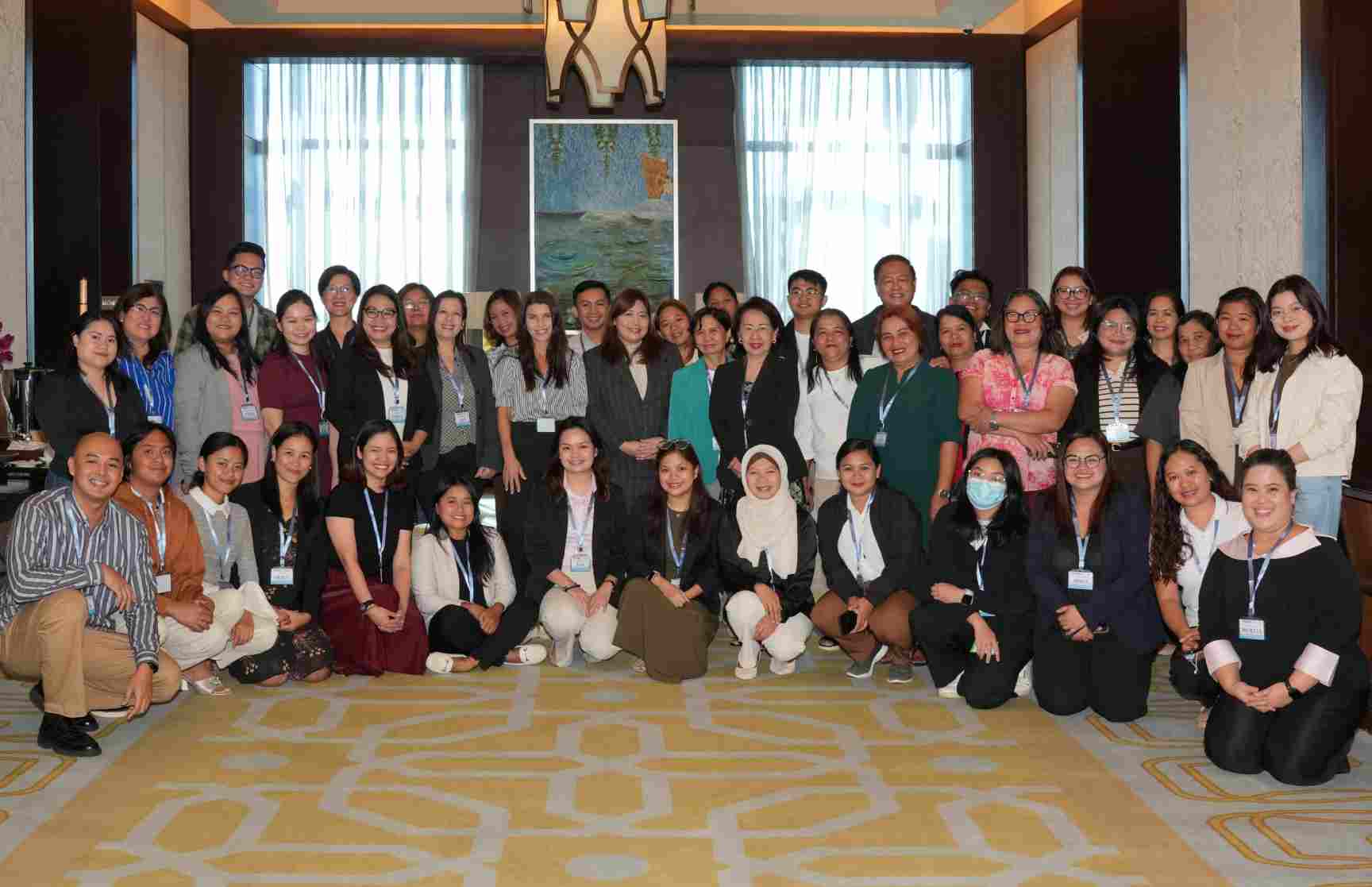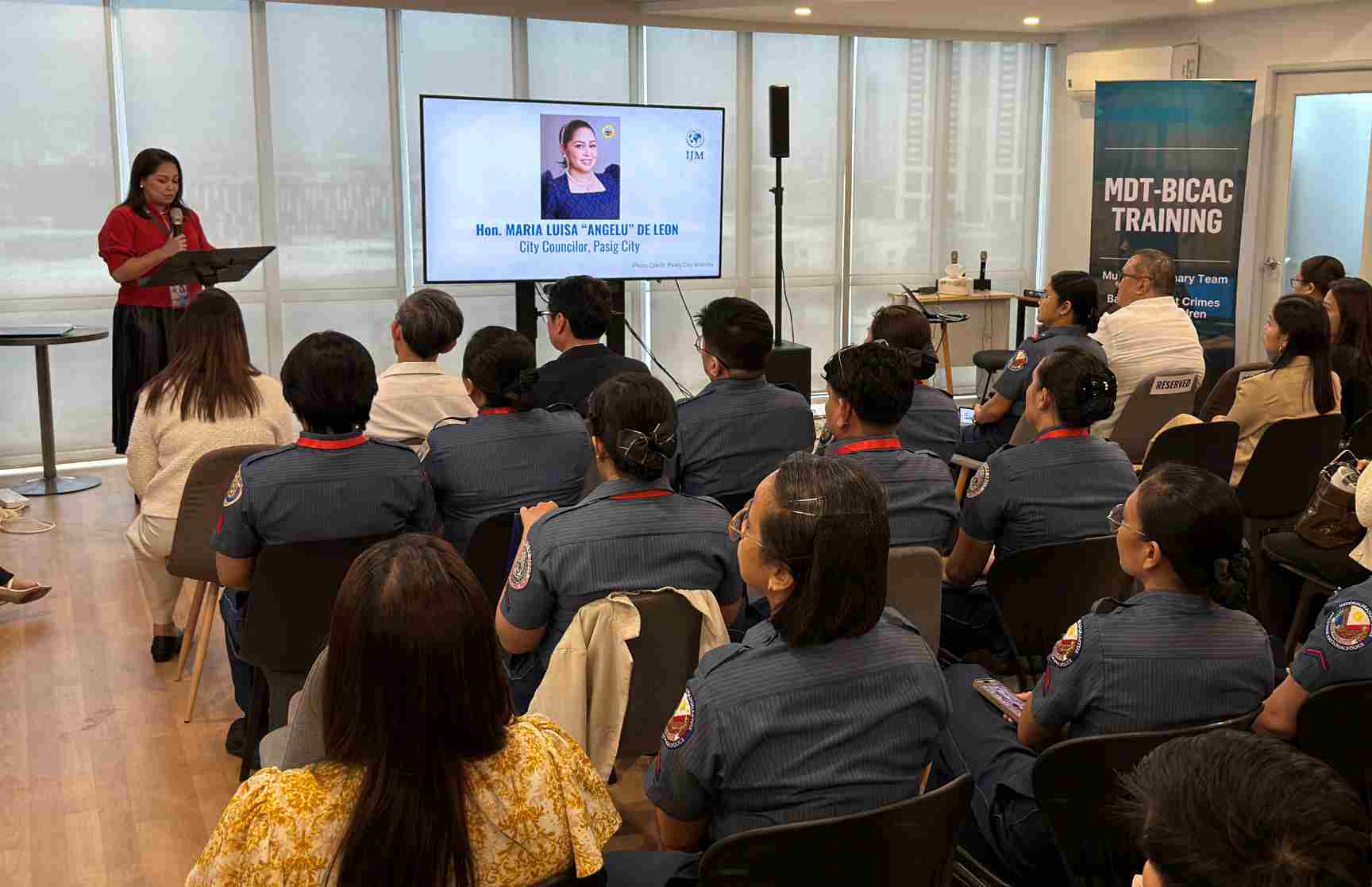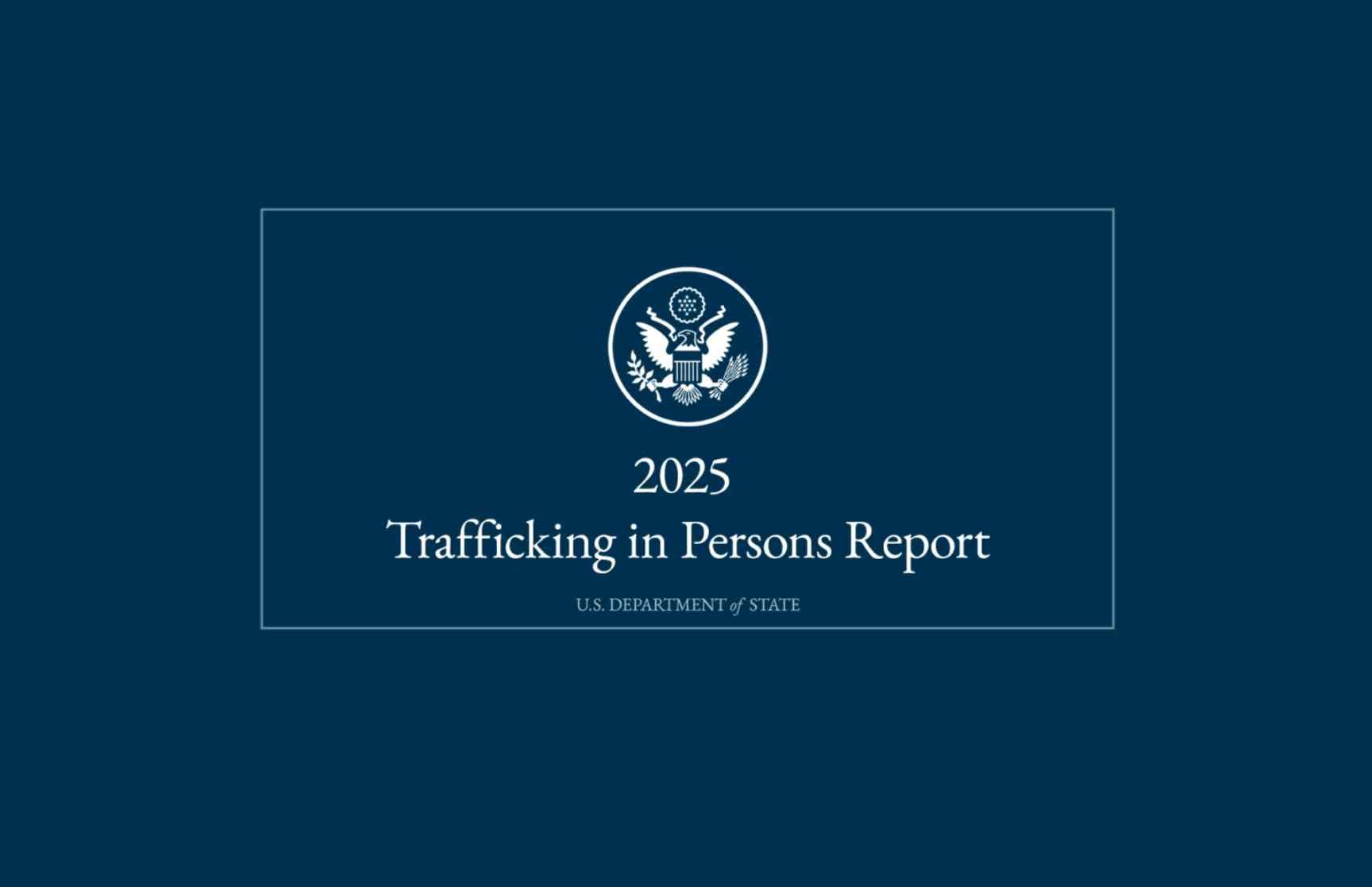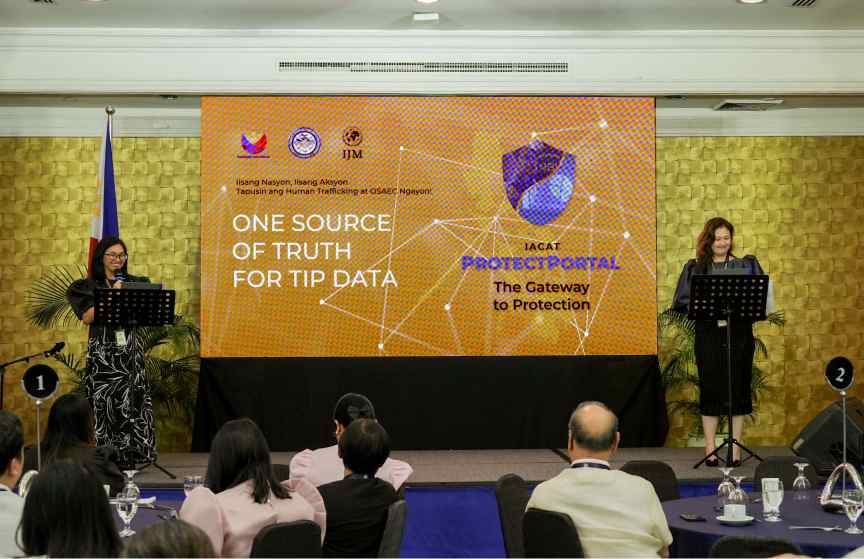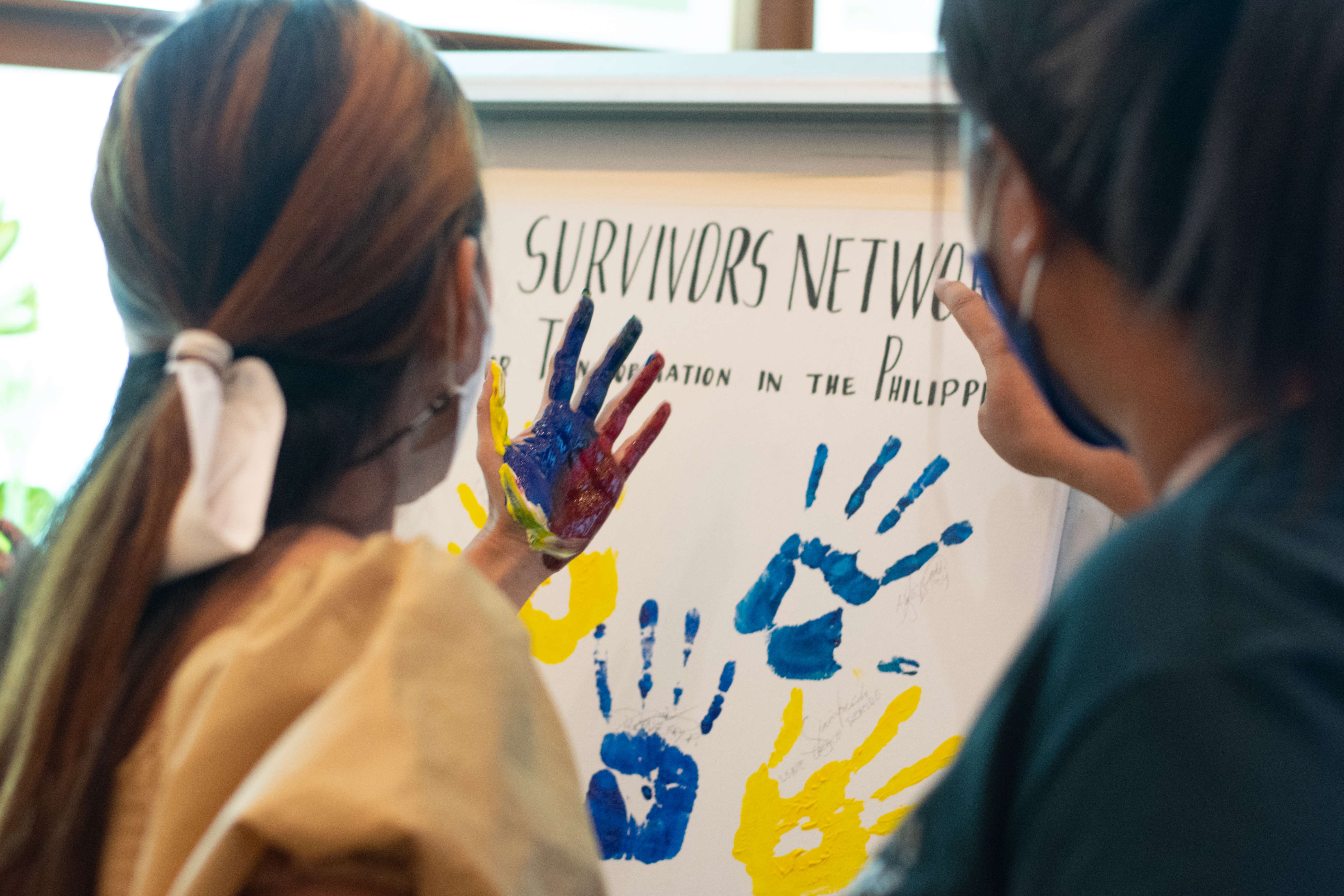
In the movement to end violence, survivor leadership is critical.
Survivors can use their experience and expertise in a leadership capacity to empower and work with fellow survivors and the community. Survivors have uniquely powerful experience and expertise to offer; they can share about the nature of exploitation, the factors that enable it to thrive, the criminals who profit from it and the solutions that will help stop it.
Seeking input from survivors is also a trauma-informed approach that honors their diverse experiences, challenges biases, strengthens programs, and contributes to a sustainable response in the community. Over time, they have participated in various routes in raising awareness and action against the abuse and exploitation, whether through program design, policy development, research, advocacy, and speaking engagements. With the support of IJM's Center to End Online Sexual Exploitation of Children, survivor leaders of the Philippine Survivor Network continued this momentum by contributing to globally recognized publications in 2023. The Center works to amplify survivor voice to call for global child protection.
Empowering Fellow Survivors for Leadership
In her recent opinion piece to an international association of experts WeProtect Global Alliance, survivor leader Ruby* pens why they need a ‘seat at the table’. To be seen as more than ‘just survivors’, she urges her fellow survivors to take the lead, be empowered as subject-matter experts, and contribute valued insights through their lived experiences.
Survivor’s voices only become meaningful when their ideas and voices impact material things, like legislation, policies, and products. Survivor inclusion adds so much credibility when their experiences are heard.
Ruby* serves as a member of the Philippine Survivor Network, a leadership council representative of the Global Survivor Network and a survivor consultant of IJM’s Center to End Online Sexual Exploitation of Children.
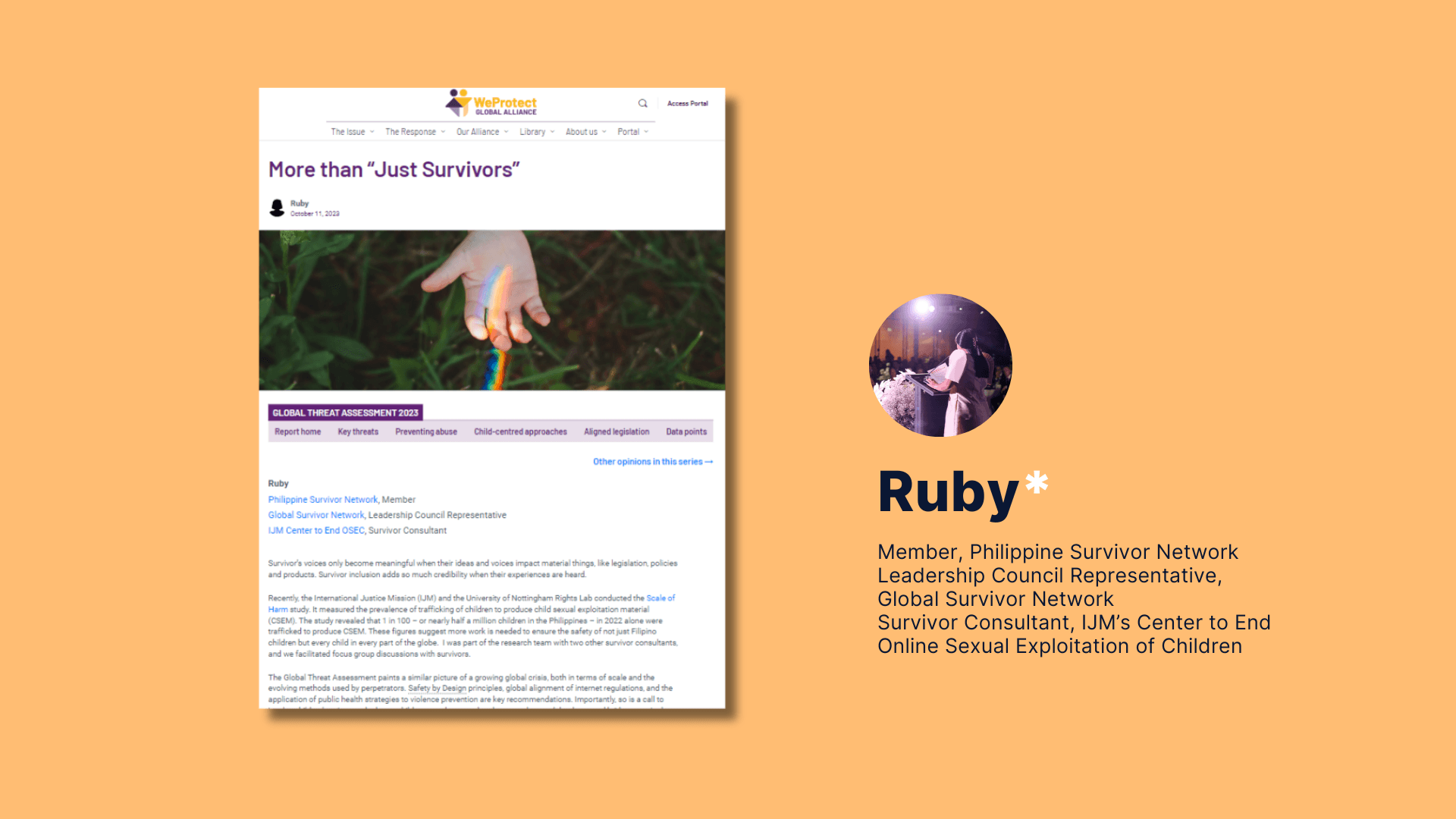 Ruby's opinion piece to the WeProtect Global Alliance
Ruby's opinion piece to the WeProtect Global Alliance
Consulting for a Groundbreaking Research Project
In September 2023, IJM and the University of Nottingham Rights Lab, a world-leading human trafficking research institution, launched Scale of Harm. This project pioneered a methodology to estimate the prevalence of trafficking of children to produce child sexual exploitation material in the Philippines. In this very first national survey and study, several Philippine Survivor Network members were consulted. They shared their perspectives as people with lived-experience of exploitation, provided feedback and recommendations, co-designed and advised on the research and survey designs, and led focus group discussions for data collection. They also presented as resource speakers in the official report launch to the Philippine government and its stakeholders; attended by over 200 at the Sofitel Philippine Plaza and over 1,500 online participants via Kumu’s livestreaming platform.
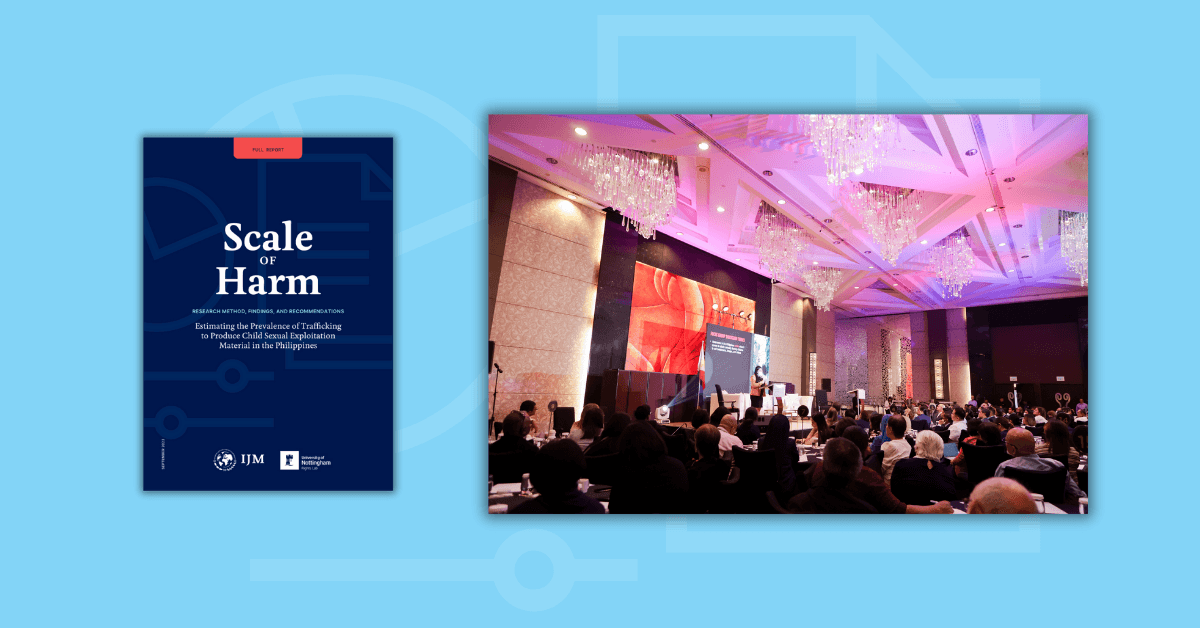 Left: IJM’s Scale of Harm full report cover; Right: Ruby presenting some findings at the Philippine launch
Left: IJM’s Scale of Harm full report cover; Right: Ruby presenting some findings at the Philippine launch
Advocating for Child-Centered Approaches
In October 2023, WeProtect Global Alliance published their 2023 Global Threat Assessment, an annual report assessing the scale and scope of child sexual abuse online globally. This resource sees millions of readers every year. Ruby* was interviewed and contributed her insights. She advocated for child-centered approaches as they (1) keep child protection at the center of the issue and (2) are ‘trauma-informed’, considering the support needs of each survivor across each different stage of their recovery journey (see page 18 of the report).
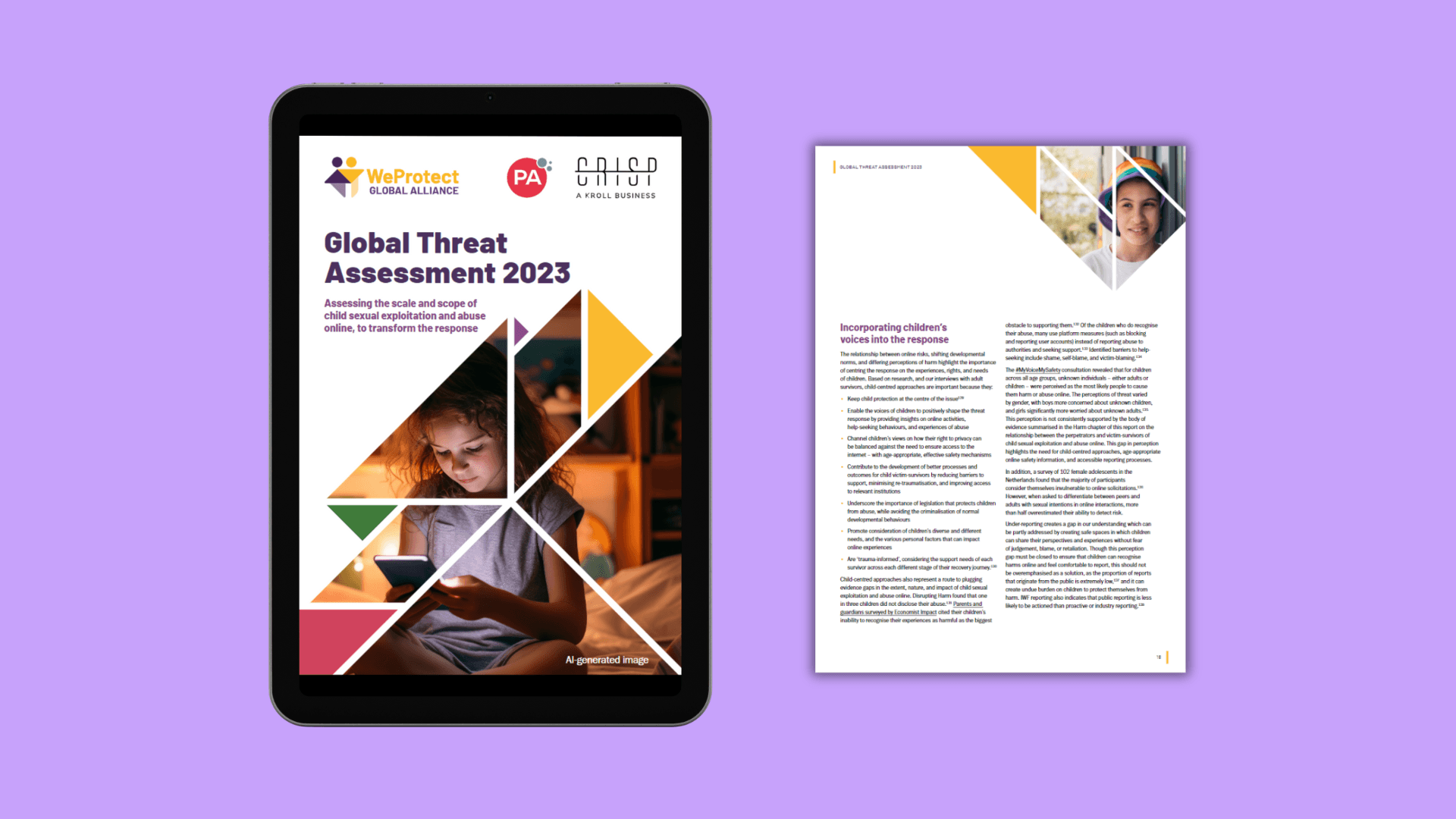 Left: WeProtect Global Alliance’s 2023 Global Threat Assessment report cover; Right: Ruby’s contributions cited on page 18 of the report
Left: WeProtect Global Alliance’s 2023 Global Threat Assessment report cover; Right: Ruby’s contributions cited on page 18 of the report
Contributing to Research Reports
Other members of the Philippine Survivor Network namely Joy*, and Liberty* also contributed their expertise to the research reports of established international organizations such as the Global Fund to End Modern Slavery and the University of Nottingham Rights Lab. Nowhere to Hide: Turning Illicit Financial Flows Against Human Trafficking in the Philippines delved on financial transactions in online sexual exploitation of children cases—the use of traditional and emerging digital payments in these cases and analyzed how different payment methods are used to buy and sell, and how financial transactions can be used to initiative effective investigations and prosecutions. Last October, its findings were launched to an international audience, with Joy*, Liberty*, and Ruby* as the resource speakers.
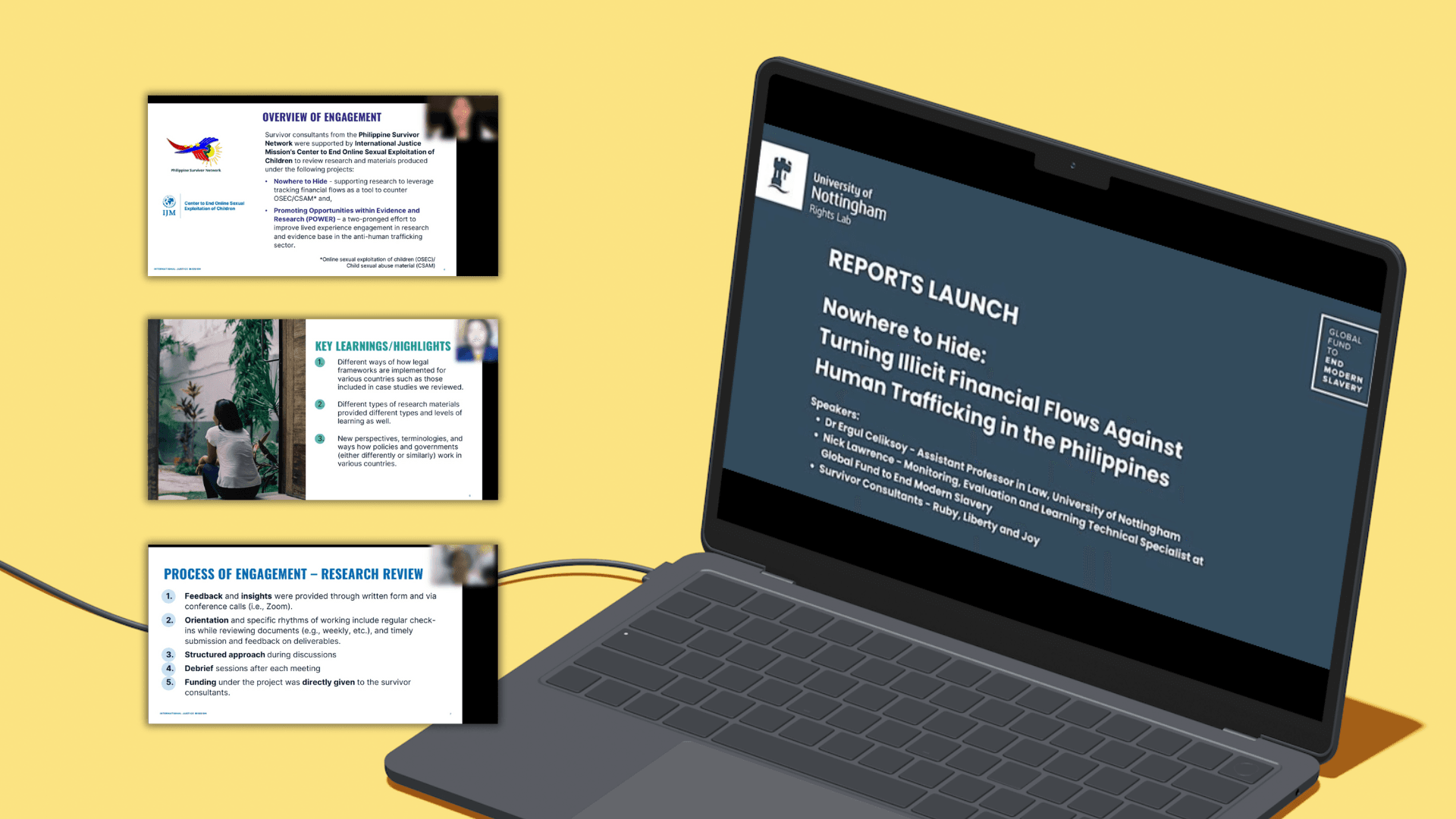
Left: Ruby, Joy, and Liberty presenting the findings at the official launch; Right: University of Nottingham Rights Lab and Global Fund to End Modern Slavery’s official launch of their research reports
Survivor Leaders: Catalytic Leaders Against OSEC
IJM recognizes that survivors will become catalytic leaders in combatting slavery and violence, both locally and globally. Whether through program design, policy development, research, advocacy, or speaking engagements, government leaders, politicians, power actors, and other stakeholders are called upon to ensure that survivors are included in every discussion or deliberation relevant to their experience. It should be ensured that solutions are informed by the real-life experiences of survivors and built for the very lives they are supposed to safeguard.
(*pseudonym)



